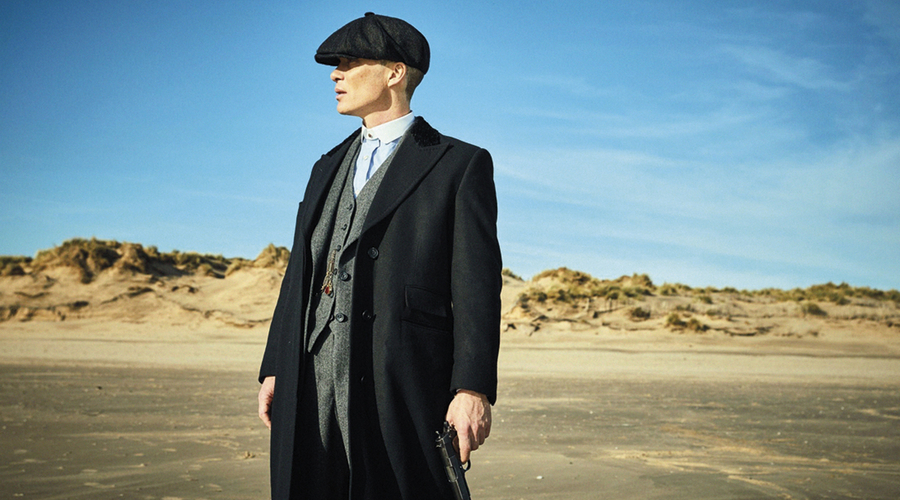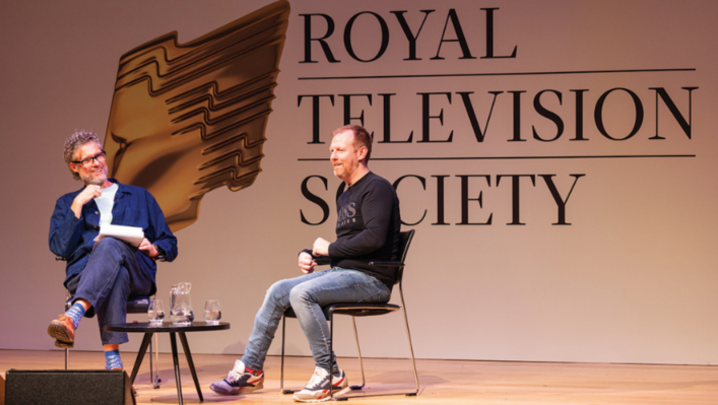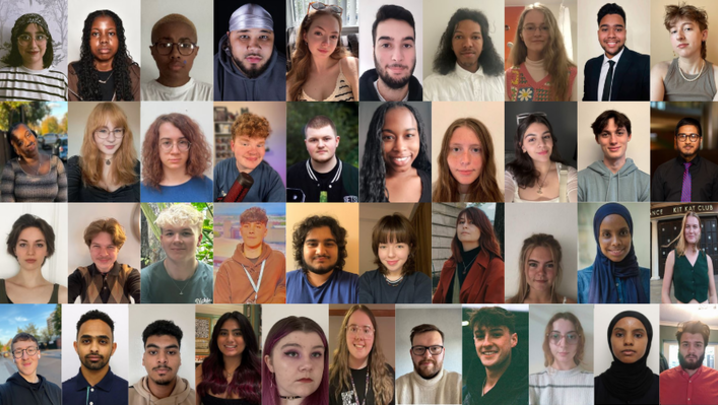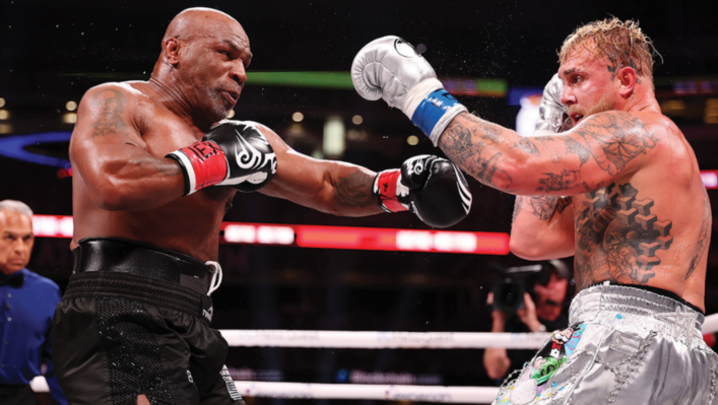Kate Bulkley examines how broadcasters are adapting to binge viewing – no longer the preserve of streaming services
Box sets and an increasing tendency for audiences to binge-view entire series of programmes, especially drama, are hardly new phenomena. But binge-watching continues to impact on business models as public service broadcasters and pay-TV operators alike test new strategies for box sets.
Back in the day, box sets on VHS and DVD were a nice ancillary earner, but the arrival of Netflix and its high end drama series changed everything.
“This is new territory and there are new rules being written about live transmissions and binge viewing,” says Lindsey Clay, CEO of Thinkbox. “There’s great scope for experimentation, and we don’t know everything yet. What we do know is that fantastic content will be watched compulsively.”
For the PSBs, the question of how to integrate box sets into the overall programming line-up is concentrating minds. This is because competitors are offering box sets as a key differentiator, and many viewers expect to be able to binge view as a matter of course.
Last Christmas, the BBC offered a wide range of box sets. These included Wolf Hall, the first three series of Peaky Blinders and all four series of Line of Duty. The Yuletide offer was part of a fight-back by the BBC against the streaming giants, principally Netflix.
BBC Director-General Tony Hall talked last year about developing iPlayer to make it a “must-visit destination in its own right”, beyond being just a catch-up service. And, in April, he told MPs that the BBC wanted “to strike the right balance” between the iPlayer and the returns it can get from advertising-based VoD and on-demand subscription services – in other words, licensing the shows it owns to third party platforms.
Tom Harrington, an analyst at Enders Analysis, says BBC box sets at Christmas created an issue for the corporation: “It brought a sizeable audience to the BBC portfolio and it skewed young.” But, because the BBC cannot monetise content on the iPlayer in the way that commercial broadcasters can by selling advertising or subscriptions, the extra cost of owning those on-demand rights can be justified only with long-term strategies such as brand-building. “There’s no immediate payoff for the BBC,” explains Harrington.

as Henry VIII in Wolf Hall (Credit: BBC)
There is also the vexed question of how the BBC rewards independent producers for extending online viewing windows for their shows. are concerned that the corporation’s more “aggressive position on rights” will affect their revenues.
Data published in March found that 16- to 24-year-olds are now spending more time viewing Netflix than with BBC TV and iPlayer. “The iPlayer has been plateauing and even declining on mobile devices, even as it is experiencing growth on the TV set,” says Harrington. “In 2017, we had the BBC at 32% of all consolidated TV viewing, but only 8% of total online viewing, which is pretty low and it’s not getting any higher.”
ITV is also beefing up the opportunities for its viewers to binge view. At the beginning of the year, the broadcaster expanded its 30-day catch-up window with a “series so far” offering.
Via the ITV Hub (now available on 30 platforms), all episodes of a current series are made available for 30 days after the final episode airs.
ITV has seen a 20%-30% uplift in VoD viewing on these shows. “More people are sticking with them, safe in the knowledge [that episodes] will be available from the beginning to the end,” notes Paul Kanareck, ITV’s Managing Director of online. “Our data also shows that these are predominantly ‘lighter’ ITV viewers, with many Hub user accounts being reactivated to watch them.”
ITV has made box sets available by raiding its archive for shows that are relevant to a current show. When Trauma, starring John Simm, was on air, the broadcaster released box sets of two other shows that he starred in, Prey and Code of a Killer. This delivered both commercial and marketing benefits, says Kanareck.
Drama is the big pull for box sets, but ITV’s online boss says that the first and second series of Love Island were the most popular among ITV’s binge viewers last year.
The company’s new CEO, Carolyn McCall, told the broadcaster’s AGM last month that part of her “strategy refresh” would involve VoD. She hinted that a Netflix-like subscription VoD service, expanding on ITV’s current £3.99-a-month, ad-free version of ITV Hub, may be on the cards. It might even appear in conjunction with a wider roll-out of the BBC and ITV’s North American streaming service, BritBox, which launched in the US in 2017 and recently made its Canadian debut.
ITV Hub had an impressive first quarter: it served 374 million requests, up 31% year on year, while viewing hours grew to 84 million from 64 million and revenue surged by 41%.
"According to Barb, the number of UK households paying for at least one subscription VoD service grew 20%, to 10 million households, between 2016 and 2017"
ITV, Channel 4 and the BBC, in conjunction with NBCUniversal, are also reportedly talking about a joint streaming service that would include box-set availability. Dubbed Kangaroo 2, after the service that was rejected by regulators in 2009, the idea is for the PSBs to somehow out-Netflix Netflix.
Given that Ofcom CEO Sharon White has been making encouraging noises about partnerships and collaboration among UK PSBs, the potential for a Kangaroo revival looks promising.
According to Barb, the number of UK households paying for at least one subscription VoD service grew 20%, to 10 million households, between 2016 and 2017.
“Content-wise, Kangaroo 2 could be excellent, something that Netflix surely knows because it has so much UK PSB content in its libraries,” says Harrington at Enders Analysis. “However, it remains to be seen whether the PSBs can align their interests to get it off the ground.”

At Channel 4, new CEO Alex Mahon has said that she will “rapidly accelerate digital capabilities”, as part of a three-pronged strategy aimed at countering the growing challenges posed by Facebook, Amazon, Apple, Netflix and Google.
Mahon told a group of independent producers and journalists on 16 May that she will concentrate on young people, digital and culture. The focus on digital will include increased investment in the on-demand service All 4.
The intention is that all future commissions will be judged by their performance on-demand, on social and on linear. It is dubbed the “one programme, many platforms” initiative.
In many ways, Channel 4 is ahead of the game, because it has been adding to an archive of box sets over the past 10 years. There are some 150 series across all genres available on All 4.
On some days, there will be more viewing of archive box sets of Shameless and Misfits than of catch-up TV, says Richard Davidson-Houston, head of All 4: “The hot topic – what is the right windowing strategy? – is because of the dreaded word ‘cannibalisation’. But, actually, we’re seeing less cannibalisation than we feared.”
For example, Channel 4 released Lee and Dean, a new comedy series about Stevenage builders, simultaneously on All 4 and Channel 4. According to Davidson-Houston, this approach yielded incrementally more viewing on-demand, with no apparent cannibalisation of the linear broadcast.
While acknowledging that Channel 4 is in a “windowing experimentation stage”, he believes that offering box sets from the outset gives a series “better audience retention” across the entire series.
As for any potential revival of Kangaroo, Mahon will not be drawn, but she does believe that, in the era of the Faangs, partnerships makes sense: “Nowadays, you have to think about the big global rivals and also about what British public service is.
“My focus is on protecting PSB, regardless of whether that might be helping the BBC as well as Channel 4. For example, in terms of prominence on smart TV sets and devices, we need to be working together.”
The recent Sky show Save Me, produced by ITV Studios-owned World Productions, is one of the latest examples of how box sets can work. The six-part crime thriller was released as a box set at the same time as its initial transmission on Sky Atlantic.
The results were impressive and surprising: 6% of the total audience across the first 28 days of availability watched all six episodes within the first 24 hours; by day seven half of all the viewers in that initial 28-day window had viewed all six episodes.
“The game changer for us was Riviera, last year. We saw the same kind of speed of consumption as with Save Me,” says Jamie Morris, channel editor for Sky Atlantic and head of scheduling for all of Sky entertainment. “We’ve been releasing content in this way for a while. We are finding that people want to consume all of a series quickly when it is content that they really love.”
“The danger with a simultaneous box-set release and live transmission is that you lose word of mouth and, if the series doesn’t land with viewers, there is nowhere to go'
Sky is less concerned about overnight ratings because it values its subscription income over its advertising. “The majority of Sky customers are on-demand capable,” says Morris. “We merchandise across the platforms – linear, on-demand, Sky Now and Sky Go. We are agnostic about how they watch it.”
Simon Heath, CEO of World Productions, which produces Line of Duty for the BBC and made Save Me for Sky, believes that it is about understanding the different broadcaster models.
“Serialised TV, where it’s about offering one episode a week, can build an audience. We saw this really clearly with Line of Duty,” he says. “The danger with a simultaneous box-set release and live transmission is that you lose word of mouth and, if the series doesn’t land with viewers, there is nowhere to go.
“But you have to understand Sky’s model, where it’s not about overnight audiences: it’s about giving the audience what they want. In this world, the definition of a hit is different.”
For Heath, neither the linear release model nor the linear-plus-box-set release model affects the storytelling. “You still need the hook at the end of each episode, however people watch,” he argues. “We have not been in this world long enough yet to see how, ultimately, we construct narratives.
“But my hunch is that, in an SVoD or a broadcaster VoD space, you probably do have the luxury of a slower-burn narrative, at least more than you do in the more hostile overnight environment of ITV1 and BBC One. But we’re still in the land of the hunches here.”
Some 60% of TV viewing is still occurring via linear broadcast, and this has remained fairly stable, according to research by Ampere Analysis. Watching linear broadcast TV will certainly remain strong, but consumers’ behaviour and expectations continue to shift.
According to Ampere, two out of three UK households expect to continue watching linear broadcasts in five years’ time, but they also expect them to be adding more catch-up and box sets. In other words, binge viewing is only likely to grow.







